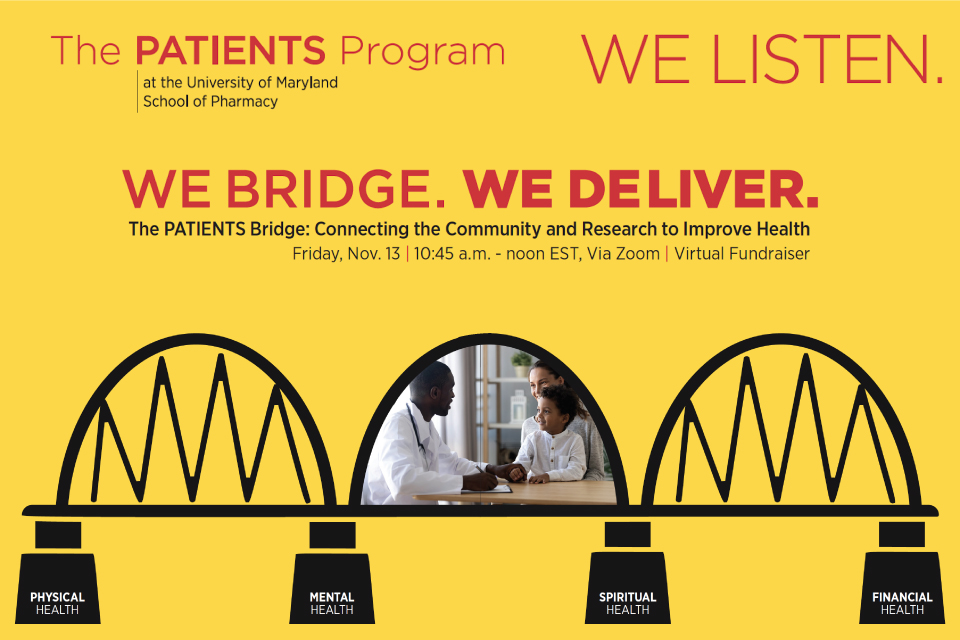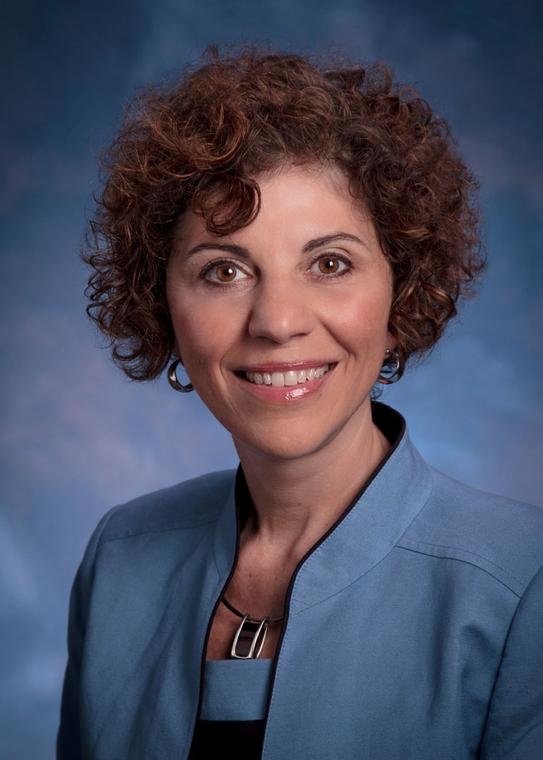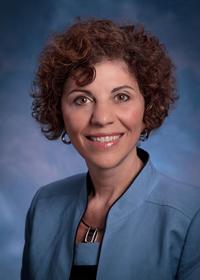SOP & NORD Receive PCORI Award to Create Patient-Centered Training Program
Pharmaceutical health services researchers, in collaboration with the National Organization for Rare Disorders (NORD), will design, implement, and evaluate an educational program for NORD members
By Becky Ceraul
July 16, 2015
Faculty at the University of Maryland School of Pharmacy have received a Patient-Centered Outcomes Research Institute (PCORI) Eugene Washington Engagement Award to support the development of a training program on patient-centered outcomes research (PCOR). The goal of the training program, which will be delivered at the annual Rare Diseases and Orphan Products Breakthrough Summit hosted by the National Organization for Rare Disorders (NORD) in October 2015, is to give NORD members, largely patients and caregivers, the knowledge and tools they need to become more engaged in PCOR.
Eleanor Perfetto, PhD, a professor of pharmaceutical health services research (PHSR) at the School of Pharmacy, will lead the engagement project. “Patients and patient groups want to become more engaged in PCOR, but when they try to take an active role or are first approached by a researcher, they may feel uncomfortable, unprepared or intimidated,” says Perfetto. “Some don’t know what is expected of them or how they can most effectively contribute. Some may also be unfamiliar with the technical lingo used by medical researchers. Our goal with this PCORI Engagement Award is to break down those barriers by training NORD members, many of them rare-disease patients themselves, to feel confident, prepared, and ready to engage in PCOR. The intent of this training will be to give the patients and patient groups the knowledge and tools they need to be active patient partners in PCOR, not merely filling a traditional, passive patient or study subject role.”
According to NORD, the leading independent nonprofit dedicated to helping people with rare diseases, nearly 7,000 rare diseases have been identified that affect nearly 30 million Americans, but treatment or cures do not exist for the majority of them. This collaborative project will design, implement, and evaluate an educational program on PCOR specifically for NORD-member organizations to empower them to participate in research that could ultimately impact the treatment of their disease.
With the $250,000 award, Perfetto and her collaborators will develop PCOR training materials or adapt existing training materials to provide instruction on PCOR, research methods, and patient engagement in the research process. The end result will be hands-on, active learning exercises for approximately 100 participants at NORD’s Annual Summit in Washington, DC, the largest multi-stakeholder event dedicated to rare disease treatment, innovation, and access, in October 2015, followed by an additional half-day session for invited participants selected through an application process. Following the training sessions, the engagement award team will conduct evaluations of the sessions, tweak the training, and disseminate what was learned to additional NORD members and researchers from other organizations.
“We are excited about this collaboration with the University of Maryland and the opportunity to provide PCORI training to the organizational members of NORD,” says Peter L. Saltonstall, president and CEO of NORD. “The goals of this program are not only timely but critical to equip patient organizations with the knowledge and understanding of how PCOR works and how they can apply it in their advocacy, research, and patient service programs. Patient involvement in R&D will be a critical part of medicine going forward.”
The project is part of a portfolio of projects approved for PCORI funding to help develop a skilled community of patients and other stakeholders from across the entire healthcare enterprise and to involve them meaningfully in every aspect of PCORI’s work.
“This project was selected for Engagement Award funding not only for its commitment to engaging patients and other stakeholders, but also for its potential to increase the usefulness and trustworthiness of the information we produce and facilitate its dissemination and uptake,” said Jean Slutsky, PCORI’s Chief Engagement and Dissemination Officer. “We look forward to following the project’s progress and working with the School of Pharmacy and NORD to share the results.”
The School of Pharmacy project and the other projects approved for funding by the PCORI Engagement Award Program were selected through a highly competitive review process in which applications were assessed for their ability to meet PCORI’s engagement goals and objectives, as well as program criteria. PCORI has awarded nearly $5.5 million to support 28 projects to date through this program. For more information about PCORI’s funding to support engagement efforts, visit http://www.pcori.org/content/eugene-washington-pcori-engagement-awards/.
“Currently, patient involvement in rare-disease research is focused on raising public awareness, aiding in clinical trial recruitment, and developing informed consent documents,” says Perfetto. “These efforts represent only a fraction of areas where patients can guide and improve rare-disease research. Patient input can guide research topics and all aspects of study design from selecting desired outcomes to selecting the ‘real-world’ comparator. Our hope is that by training rare-disease patients on how to be more engaged and sharing that information with researchers themselves, we can improve treatment options for those who suffer from rare-diseases.”
PCORI is an independent, non-profit organization authorized by Congress in 2010 to fund comparative effectiveness research that will provide patients, their caregivers, and clinicians with the evidence needed to make better-informed health and healthcare decisions. PCORI is committed to seeking input from a broad range of stakeholders to guide its work.



